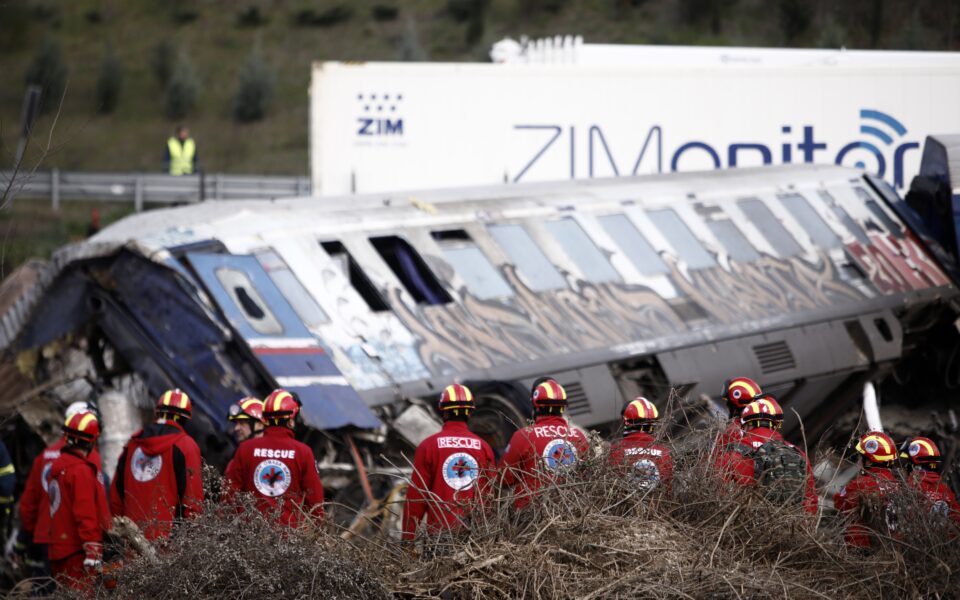Tempe rail crash anniversary to dominate this week’s agenda

This Wednesday marks the one-year anniversary of the deadliest train disaster that shook Greece. Federations have called for strikes and organized rallies to protest what is perceived as a systematic attempt to obscure the circumstances of the tragedy and cover up responsibilities.
University students, farmers, and healthcare workers are poised to continue their protests. Meanwhile, on the political front, the drama within the main opposition SYRIZA party, which peaked on Sunday, is expected to continue monopolizing the agenda.
Tempe train crash
Protests will take place around the country for the anniversary of the Tempe train collision, which killed 57 people – many of them students – and left dozens injured.
“The explosion in the wagons cannot be explained,” the technical expert of the association of the victims’ families, Vassilis Kokotsakis, said in his report submitted to the judicial authorities in Larissa. The collision site was described as “contaminated” and altered, having been filled with gravel and concrete.
Last week, MPs from three opposition parties walked out of the parliamentary committee probing the disaster after accusing ruling New Democracy of trying to engineer a “cover-up” and acquit those responsible.
A memorial service took place at the site of the tragedy on Sunday. Additionally, on Saturday, students from Thessaloniki, Thessaly, and Athens visited the site to lay flowers. Greece’s largest public sector union, ADEDY, along with the Federation of Secondary Education State School Teachers (OLME), the federation of bank employee unions (OTOE), and numerous labor unions have called for a 24-hour strike.
Protests
Farmers’ blockades persist as the new Common Agricultural Policy (CAP) undergoes review in Brussels. In Western Greece, farmers have opted to sustain their mobilizations with blockades, while those in Macedonia are planning to unveil new forms of mobilization. Meanwhile, in Thessaly, they will deliberate on their future strategies in anticipation of their meeting with the prime minister on March 11.
At universities, opposition to the law on private universities persists, as it is set to be submitted to parliament this week. The final text will be presented to the plenary on March 7 and put to a vote on March 8.
Health workers continue their mobilizations against the implementation of paid afternoon surgeries in public hospitals. The Greek Medical Association stated, “Afternoon surgeries will not only fail to solve problems but will also create new ones,” ahead of the scheduled commencement of afternoon surgeries on March 1.
SYRIZA drama
The political scene will be dominated by the aftermath of the toxic SYRIZA party congress. A leadership race five months after the previous one was averted at the last minute, but the main opposition party is left even more divided.
On both fronts, both the party leader Stefanos Kasselakis and the former party leader Alexis Tsipras, are deeply traumatized by developments over the weekend.
Tsipras has come to realize that his influence within the party has its limits. Kasselakis did not secure the carte blanche he desired until the next national elections in 2027, indicating that this entire debate will likely resurface after the European elections. Both factions have managed to distance themselves from each other.





